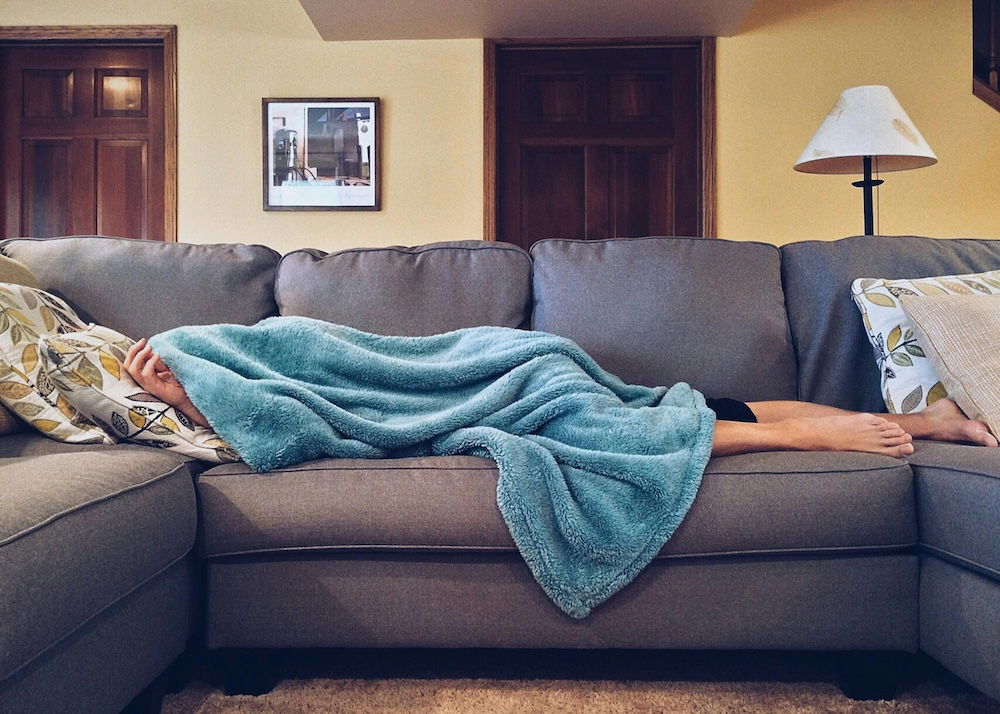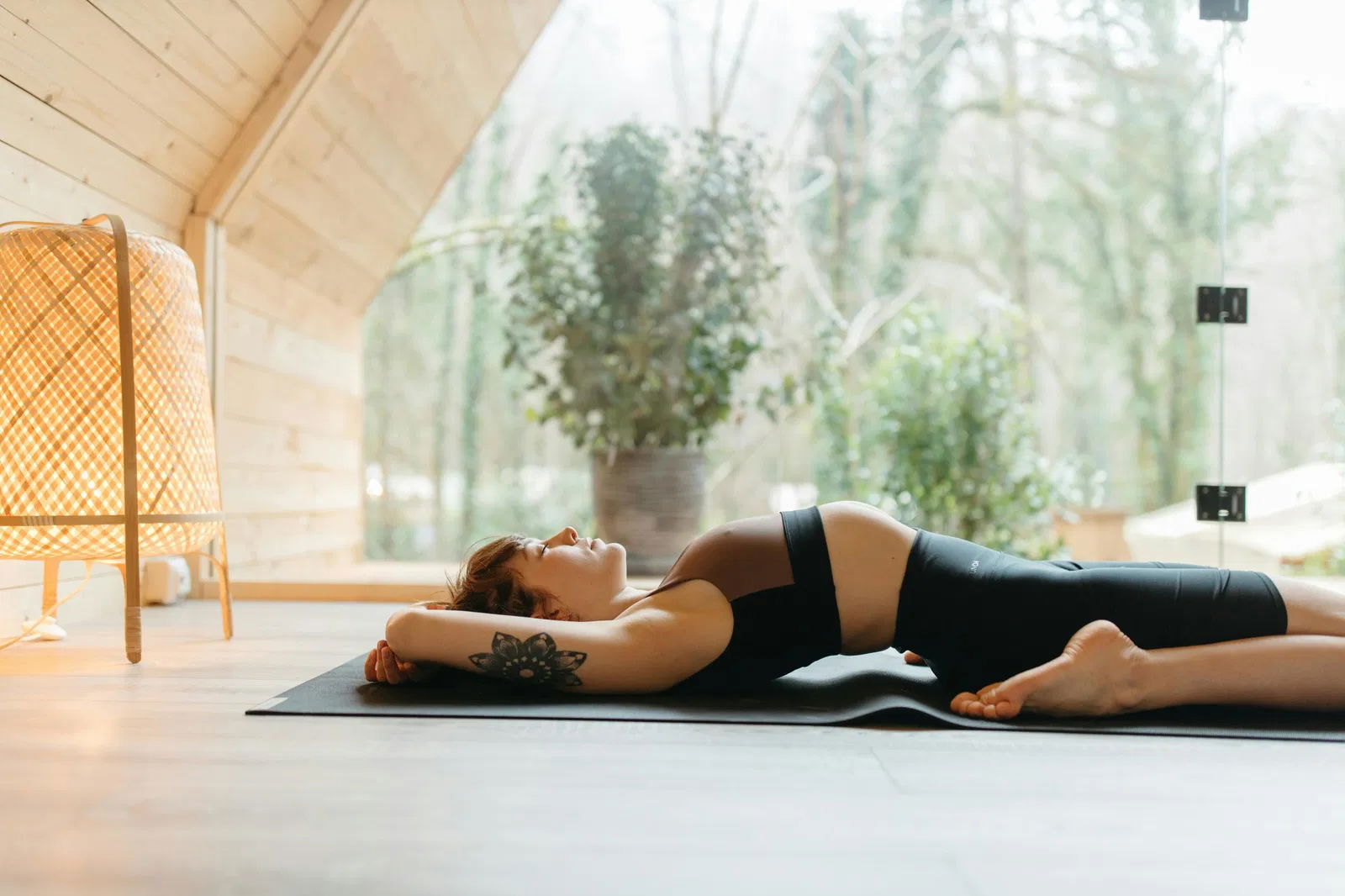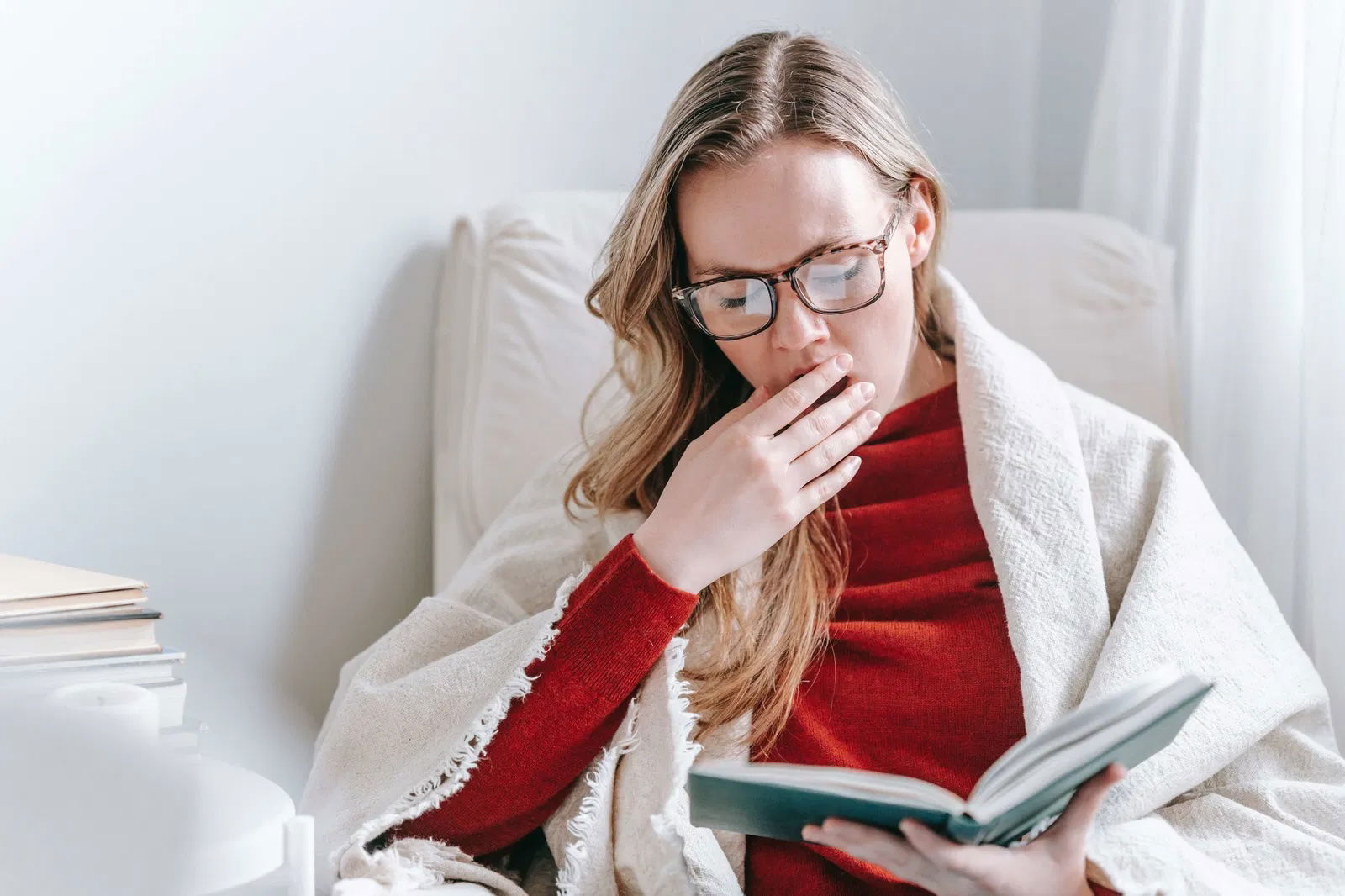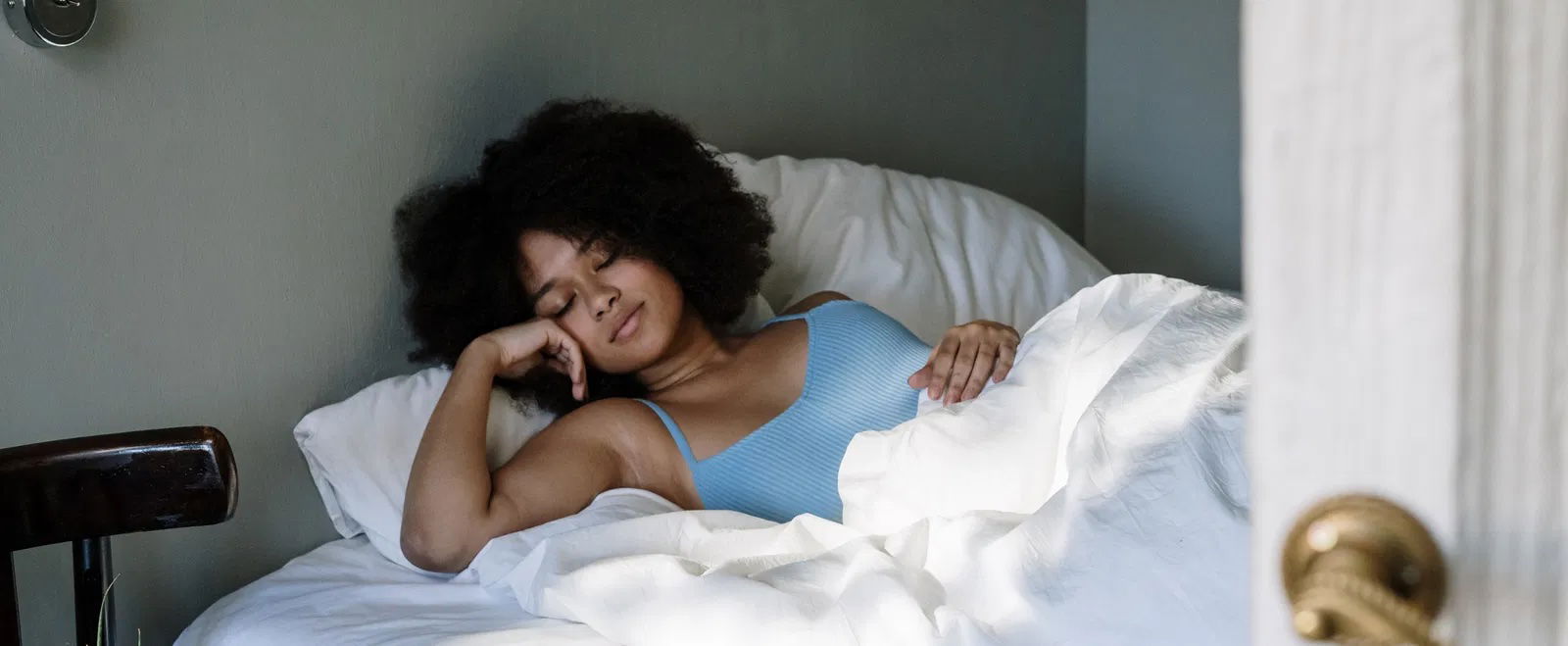Struggling to sleep? Try Meditation Moments
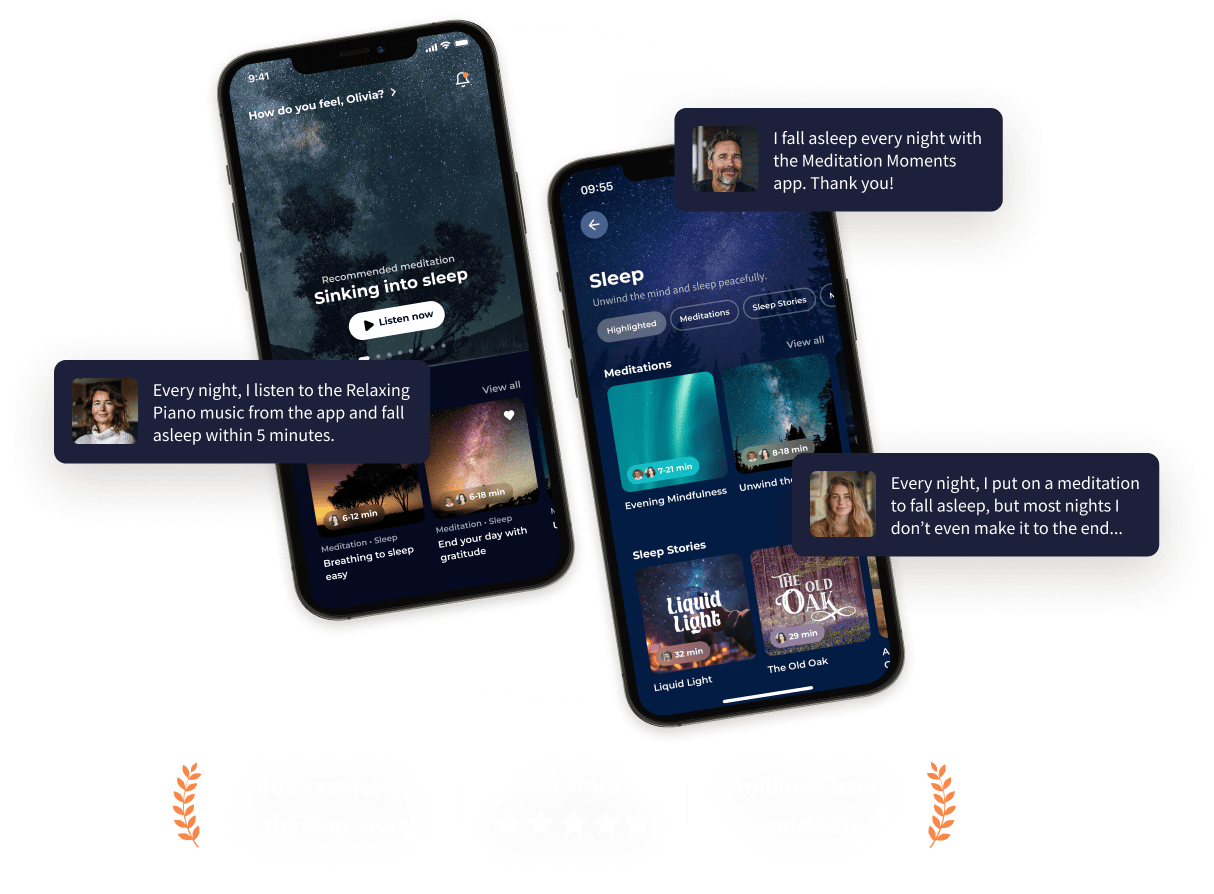
Science confirms: meditation works!
Our meditations have already helped over 500,000 people sleep better.
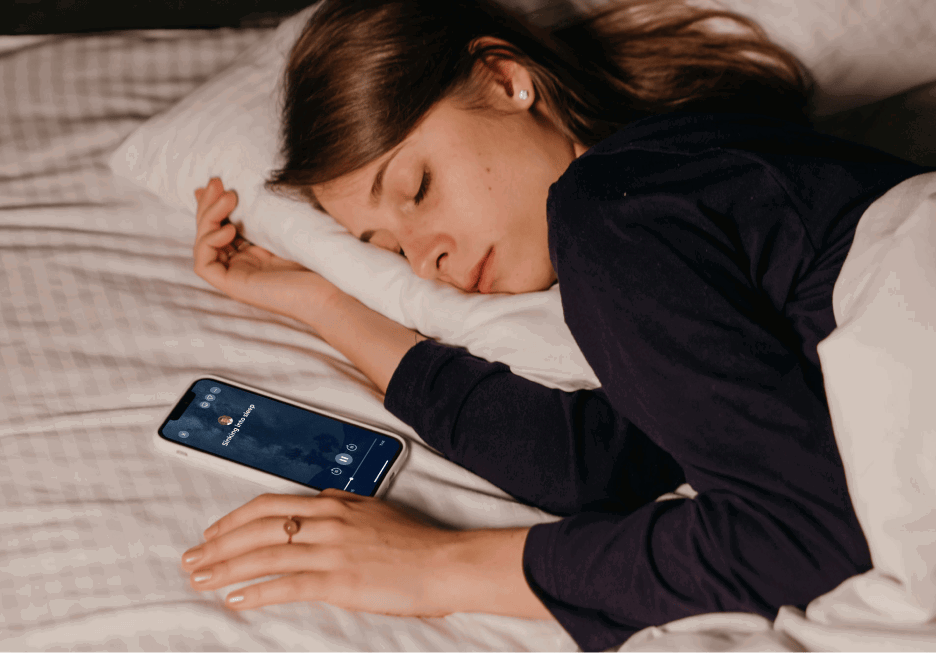
85% of our users sleep better after just 2 weeks
Struggling with sleep can be frustrating. Maybe you don’t have a solid bedtime routine, or your thoughts keep you awake at night. In that case, it’s important to take a moment before bed to reflect and wind down in a positive way. We’re here to help!
- Improve your sleep quality and energy levels
- Calm your mind before bedtime
- Fall asleep faster and sleep through the night
Tired of sleepless nights?
Sleep stories for adults
Sleep stories are dreamy narratives designed to prepare your mind for a restful night. The sleep stories in the Meditation Moments app are narrated by well-known speakers and are specifically crafted to help you fall asleep with ease.

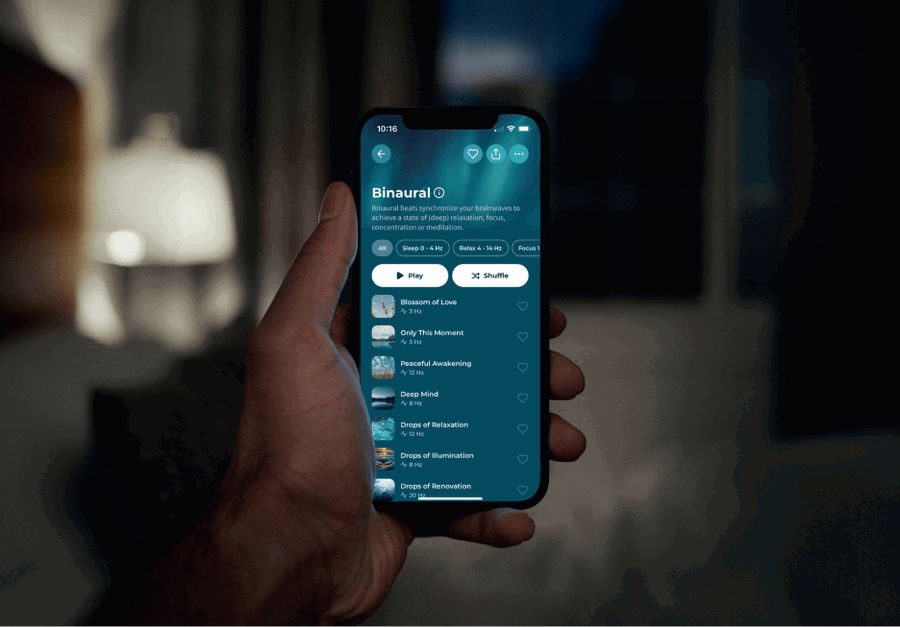
Drift away with binaural beats
Research suggests that listening to binaural beats in the lower delta range (0-4 Hz) can promote relaxation and improve sleep. Make it part of your nightly routine to fall asleep faster and stay asleep longer.
Calming breathing exercises
Breathing exercises are a simple and effective way to calm your mind and fall asleep more easily. In the Meditation Moments app, you’ll find several guided breathing exercises designed to help you relax and gently drift off to sleep.
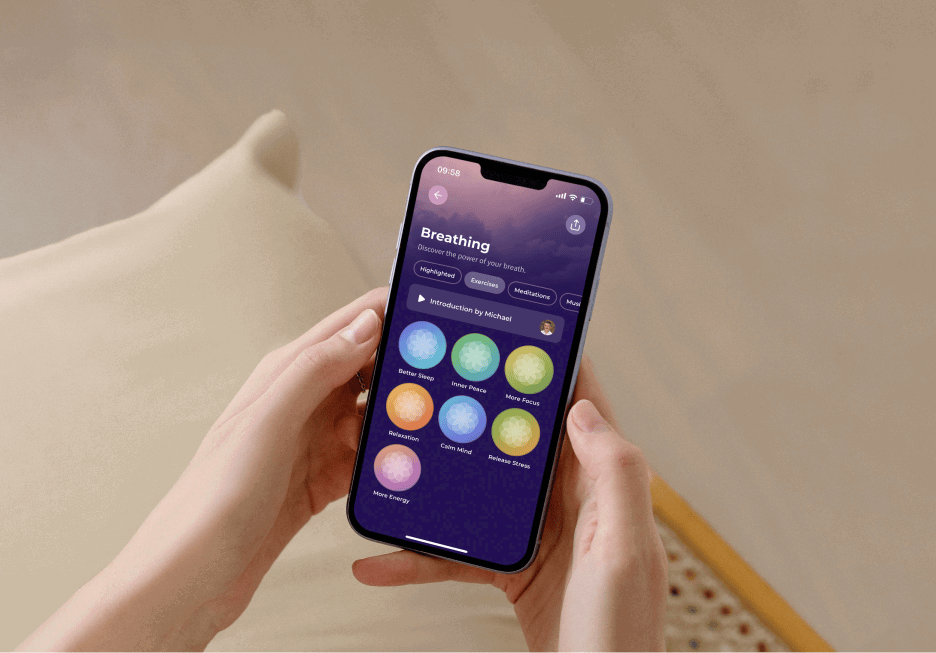
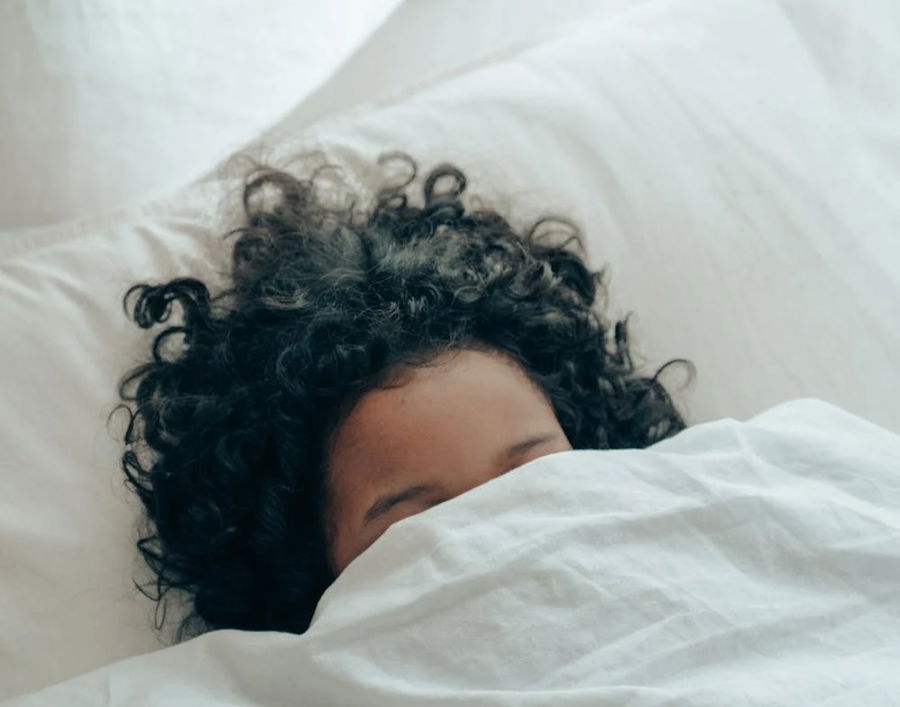
What to do when you can’t sleep
There’s nothing more frustrating than lying awake when all you want is to fall asleep. If you’re struggling to drift off, try getting up for a moment and doing something calming—like listening to a sleep meditation. This helps quiet your mind and gives your body a chance to relax.
Having a consistent evening routine, staying away from screens before bed, and listening to soothing sleep music or meditations can help you fall asleep faster and improve the quality of your rest.
Sleep better tonight with Meditation Moments — free for 7 days.
No credit card needed. By submitting this form you agree to creating an account and our Terms & Conditions and Privacy Policy.


